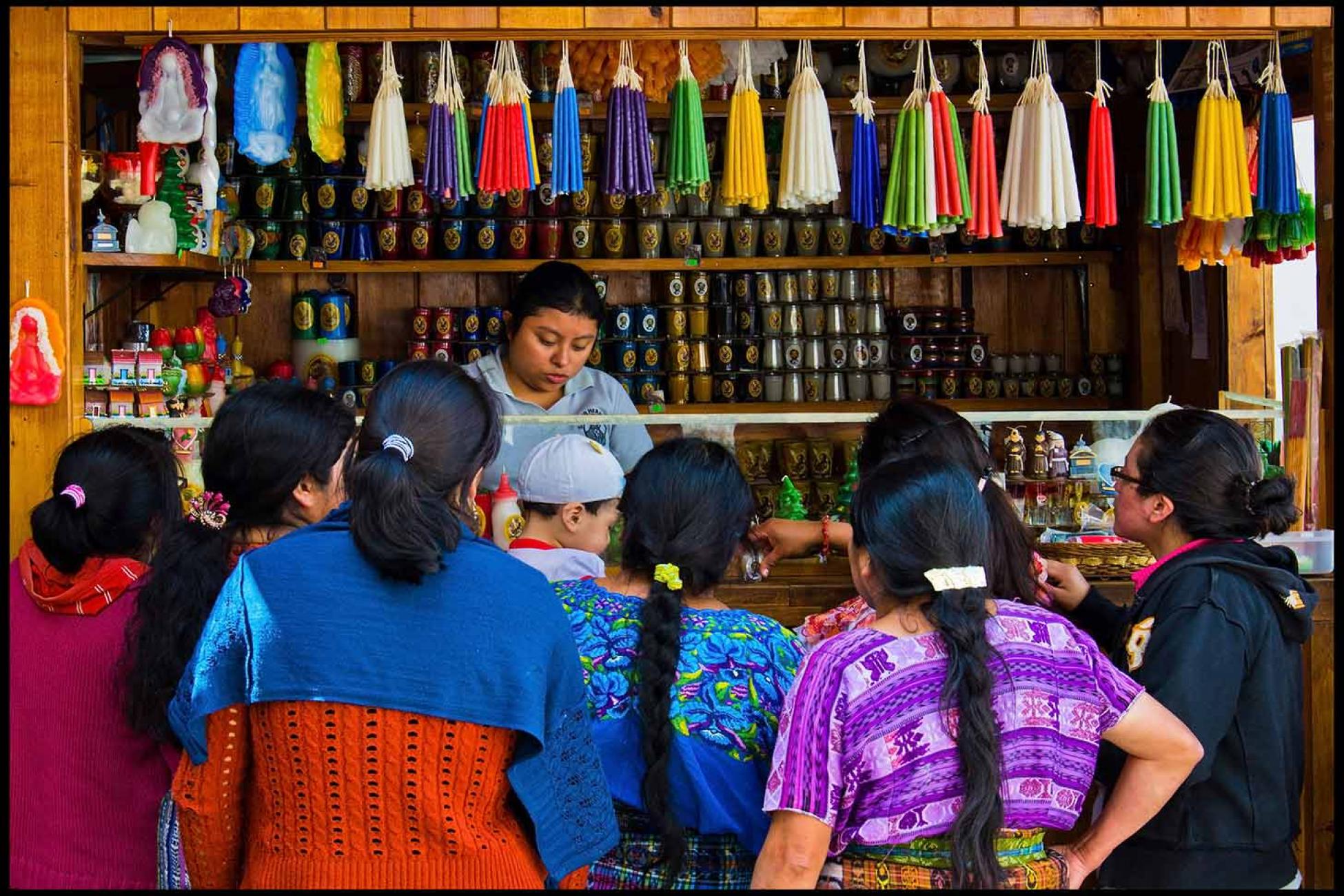"Is it okay if I read this story over the loudspeakers?" I asked my Spanish maestro in Español muy malo.
"Okay. If you want to,” he laughed. “But it’s better if you read it in voz alta—'out loud'—not in altavoz—'over the loudspeaker.'" I cringed at my mistake, jotted down a note to avoid future hilarity and started reading next to a fountain in a fern-filled courtyard.
To kick off a recent trip to Central America, I took Spanish lessons at La Union Centro Linguistico in Antigua, Guatemala. It wasn’t my first time; four years earlier I’d studied at the nearby Academia Sevilla.
It’s no surprise that I felt compelled to come back to Antigua for another dose of language learning. For North Americans, Guatemala has become the quintessential place to study Spanish. Of all the Spanish-speaking countries in the world, it’s more affordable than places like Costa Rica or Spain, and the Spanish that's spoken is clear. It doesn’t hurt that the countryside is stunning and the culture is colourful.
Guatemala is affordable and the Spanish that's spoken is clear. It doesn’t hurt that the countryside is stunning and the culture is colourful.
Spanish teacher Oscar Azurdia has watched the language scene in Antigua change significantly during his 14 years on the job. Originally he dealt mainly with backpackers looking for a week-long crash course. Today he says he gets more serious students of various ages from all over the world, many who choose to study for months at a time.
Most schools pair one-on-one lessons in the morning with afternoon outings, like salsa lessons or volunteer opportunities. The cost generally ranges from $150 to $300 per week, which includes an optional homestay and meals with a local family. Considering the price you’d otherwise pay for a hostel and food, it’s a steal of a deal that will give you a deeper cultural experience.
Choosing a location
Antigua
With more than 20 schools to choose from, Antigua—Guatemala´s cobblestoned colonial crown—is often considered the epicentre for learning Spanish. From crumbling ruins to the hoppin’ Mono Loco bar, Antigua has it all. The more credible schools in town offer credit for Spanish classes at affiliated colleges.
Although Antigua is an undeniably attractive spot with easy access to nearby beaches and volcanoes, a drawback is the number of English-speaking tourists. That makes it a lot harder to practice the language. One past student says that she’d recommend studying elsewhere, where you’re forced to speak the language. “It’s very challenging and may not be as fun for a tourist, but will help you in the long-term,” she advises.
Quetzaltenango (Xela)
The gritty highland town of Xela is a top choice for more serious Spanish students. Karen Stroebel, a 29-year-old Vancouverite, studied at the nearby Escuela de la Montaña and says she can't recommend it highly enough.
“It has a real political aspect, so while you're learning Spanish, you're also learning about Guatemalan history,” she says. In the evenings, they’d gather with people from the village to learn about their experiences during the war. “Sometimes we studied by candlelight in the ranchitos,” she recalls. “It was a magical place to learn.”
Lago de Atitlan
Many of the lakeside towns around Lago de Atitlan, such as Panajachel and San Pedro, have Spanish schools. The steep green slopes around the volcanic lake are ideal for anyone looking for easy access to outdoor activities. The area’s schools tend to be more affordable and seem to attract backpackers looking to learn a bit while partying it up.
Stroebel also studied at the San Pedro Spanish School for a few weeks. "The teaching wasn't as strong compared to other schools, but San Pedro is a fun place to spend a couple weeks if you're okay with being on the gringo trail," she says.
How much time do you need?
Backpackers looking to learn travel essentials tend to study for a week or two, while students looking to become more fluent often study for months at a time. How much time is enough? That depends on the individual.
Some can pick up the basics in a few weeks. Linda Corsius of Québec was already fluent in French and found that two weeks were sufficient. “Since I made friends with whom I only spoke Spanish, I felt that in two weeks I accomplished my short-term goal," she says.
Stroebel, on the other hand, studied for five weeks and says she’d staylonger next time. “Learning a language is a lifelong journey and it takes time and patience,” she explains. “For a long time, I kept exclaiming ‘pajeros’ when I heard birds. A few months in, someone corrected me to use ‘pajaro’ and pointed out that pajero means ‘liar,’ or worse, ‘wanker.’”
Choosing a school
Many prospective students choose their schools based on recommendations from friends. Guidebooks like Lonely Planet and Moon also provide listings of credible schools, while websites such as guatemala365.com review schools.
During busier times of the year, it may be worth reserving a spot at your school of choice. But if you’re less sure about where you want to study, it’s usually not a problem to sign-up upon arrival—and without any references, it’s highly recommended to have a look at the school before committing. Will Chorm of Cascadia, BC recalls his experience in Antigua. "The school was a bit sketch," he says. "The principal wasn't really one, the homestay was a boarding house and the upstairs was the school."
Finally, nearly all Spanish schools offer a homestay option. It's a great way to get a complete cultural immersion and support locals.
This article originally appeared in the Spring 2015 issue of Verge.
Add this article to your reading list




